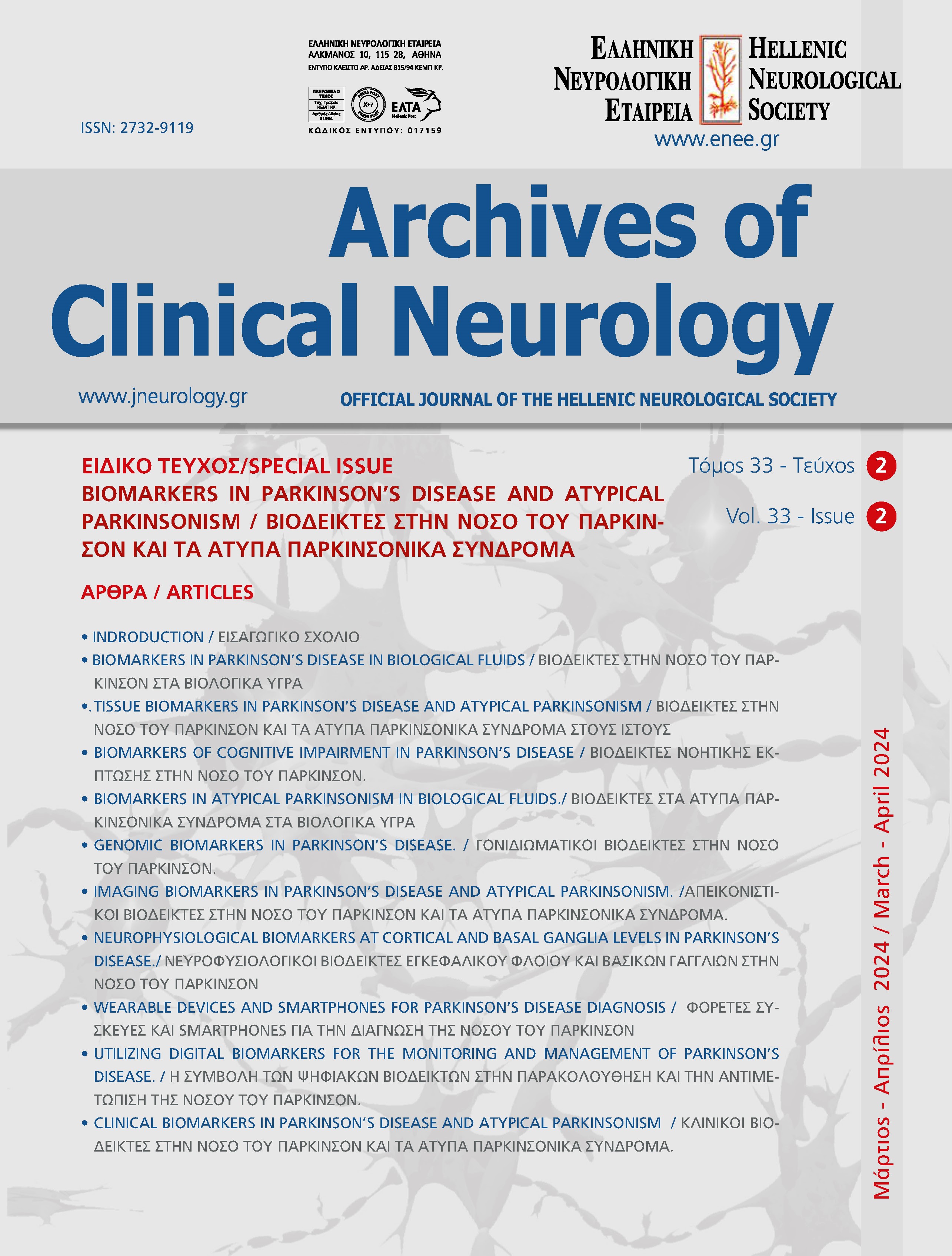GENETIC BIOMARKERS IN PARKINSON’S DISEASE
Keywords:
Parkinson’s disease, biomarkers, genetic biomarkers, genes, mutations, genetic screeningAbstract
Parkinson’s disease (PD) is a neurodegenerative condition that involves the gradual loss of dopaminergic
neurons in the substantia nigra. The discovery of genetic biomarkers has greatly enhanced our comprehension
of the etiology of Parkinson’s disease (PD), providing valuable knowledge about the molecular pathways
that drive the disease and creating opportunities for improved diagnosis, prognosis, and focused treatment.
Genetic investigations have identified several crucial genes linked to Parkinson’s disease (PD), such as
LRRK2, SNCA, GBA, PARK2 (Parkin), PINK1, and PARK7 (DJ-1), among others. The presence of mutations
in these genes emphasizes the significance of protein aggregation, mitochondrial dysfunction, lysosomal
processing, and oxidative stress in the etiology of Parkinson’s disease (PD). For example, mutations in the
LRRK2 and SNCA genes are associated with both familial and sporadic cases of Parkinson’s disease (PD),
highlighting the importance of alpha-synuclein aggregation and kinase activity. GBA mutations, which are
commonly linked to Gaucher’s disease, have been found to be important risk factors for the development
of PD. This highlights the role of lysosomal dysfunction in contributing to the disease.
Recent progress in the fields of genomics and bioinformatics has made it easier to identify more genetic
variables and pathways that have a role in Parkinson’s disease (PD). These genes encompass those
associated with immunological response, cellular adhesion, dopamine production, and mitochondrial
quality control. These findings not only improve our comprehension of the diverse genetic characteristics
of PD but also emphasize the intricate interplay between genetic vulnerability and environmental factors
in the progression of the disease.
Discovering genetic biomarkers for PD has potential for enhancing the therapeutic treatment of the
disease. Genetic screening can assist in the early detection of diseases, enabling the implementation
of neuroprotective treatments prior to the occurrence of substantial neurodegeneration. Moreover,
comprehending the genetic foundation of PD facilitates the creation of individualized medical strategies
that focus on certain pathways modified by genetic mutations in affected individuals.


